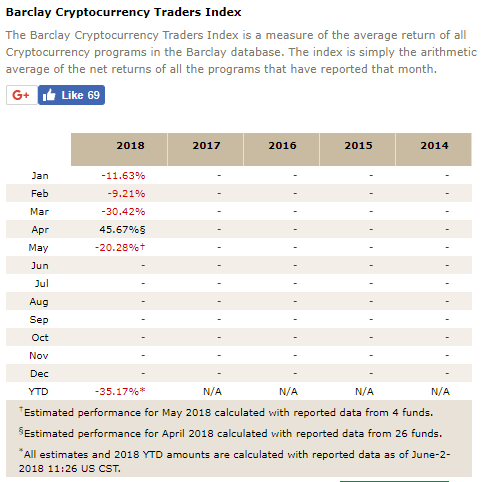
What Is Cryptocurrency?
Given this situation, illegal activity is moving away from Bitcoin. Before you invest one dollar, learn about cryptocurrency exchanges. These platforms provide the means to buy and sell digital currencies, but there are 500 exchanges to choose from, according to Bitcoin.com. Do your research, read reviews and talk with more experienced investors before moving forward. Cryptocurrency is a digital payment system that doesn’t rely on banks to verify transactions.
As the record of a cryptocurrency’s entire transaction history to date, a blockchain has a finite length – containing a finite number of transactions – that increases over time. On the other hand, cryptocurrencies come with a host of risks and drawbacks, such as illiquidity and value volatility, that don’t affect many fiat currencies. Additionally, cryptocurrencies ICO are frequently used to facilitate gray and black market transactions, so many countries view them with distrust or outright animosity. And while some proponents tout cryptocurrencies as potentially lucrative alternative investments, few (if any) serious financial professionals view them as suitable for anything other than pure speculation.
In other words, no central bank or government regulates this currency (it’s decentralized). It is digital in that it is virtual, not like physical money. And it uses security features (encryption/cryptography) in order to avoid counterfeiters, secure transactions, and generate the units of currency. More than 2,200 different cryptocurrencies are traded publicly, according to CoinMarketCap.com, a market research website. And cryptocurrencies continue to proliferate, raising money through initial coin offerings, or ICOs.
The decentralized and anonymous nature of Bitcoin has challenged many governments on how to allow legal use while Bitcoin mining preventing criminal transactions. Many countries are still analyzing ways to regulate the cryptocurrency.
Person-To-Person Marketplaces
Let‘s have a look at the mechanism ruling the databases of cryptocurrencies. A cryptocurrency like Bitcoin consists of a network of peers. Every peer has a record of the complete history of all transactions and thus of the balance of every account. However, Bitcoin has several serious flaws for those seeking anonymity.
Overall, Bitcoin remains in a legal gray area for much of the world. Though exact active currency numbers fluctuate and individual currencies’ values are highly volatile, the overall market value of all active cryptocurrencies is generally trending upward.
Since the exchange of cryptocurrencies is carried out without intermediaries, the transactions have high speed and low commissions. One of the many advantages of the Internet is the development of new types of currencies. Unlike traditional paper money, these new currencies have changed the way in which values are exchanged.
Cryptocurrency developers build these protocols on advanced mathematics and computer engineering principles that render them virtually impossible to break, and thus to duplicate or counterfeit the protected currencies. These protocols also mask the identities of cryptocurrency users, making transactions and fund flows difficult to attribute to specific individuals or groups. This article from Benzinga Money has more on the basic principles of cryptography. Cryptocurrencies, or virtual currencies, are digital means of exchange created and used by private individuals or groups.
It’s a peer-to-peer system that can enable anyone anywhere to send and receive payments. Instead of being physical money that is carried around and exchanged in the real world, cryptocurrency payments exist purely as digital entries to an online database Bitcoin guides that describe specific transactions. When you transfer cryptocurrency funds, the transactions are recorded in a public ledger. I am an award-winning journalist that has covered a variety of topics from finance to economics, technology, and even sport.
What is the point of Cryptocurrency?
Short answer: Yes, Bitcoin is money. Some even call it magic internet money! It is a scarce digital commodity used as cash by millions of people and machines (yes, automated tasks running Bitcoin) around the world. People buy coffee with Bitcoin at local shops. Others get paid in Bitcoin and use it to shop online.
How Bitcoin Works
- However, it’s worth noting that it will be well over 100 more years before the bitcoin network mines its very last token.
- To buy cryptocurrencies, you’ll need a “wallet,” an online app that can hold your currency.
- public addresses are anonymous, so unless it is known to whom they belong, it is not possible to simply deduce it from the blockchain.
In today’s world, one can often hear phrases such as “digital currency” and “cryptocurrency.” These words cause the same reaction of most people, who believe that they mean the same thing or are closely related to each other. Today we will try in simple words to tell you what cryptocurrency https://coinbreakingnews.info/ is, and how it differs from digital currency, what blockchain and mining cryptocurrency are, and also what are the ways to make cryptocurrency. Although Bitcoin is now almost 10 years old, many countries still do not have explicit systems that restrict, regulate, or ban the cryptocurrency.
In particular, Bitcoin creates a permanent public record of all transactions. Once an individual is linked to an address, that person can be connected to other transactions using that address. Competing cryptocurrencies, such as Monero and Zcash, now provide much better privacy protection.
Google Goes Blockchain? New Deal Opens A Door To Crypto

The total value of all cryptocurrencies on June 6, 2019 was about $246 billion, according to CoinMarketCap, and the total value of all bitcoins, the most popular digital currency, was pegged at about $136 billion. As a counter-culture movement that is often connected to cypherpunks, cryptocurrency is essentially a fiat currency.
For cryptocurrency supporters, this anonymity is a primary strength of this technology, despite the potential for illegal abuse, as it enables a shift in power from institutions to individuals. Bitcoin is the most popular cryptocurrency, but there are hundreds of others. Some cryptocurrencies, such as Litecoin and Bitcoin Cash, share the basic characteristics of Bitcoin, but explore new ways to process transactions, others offer a wider range of functions. For example, Ethereum can be used to launch applications and create smart contracts.

Who has most bitcoin in the world?
The most common and accepted payment methods to buy cryptocurrency include: credit card, bank transfer or even cash. Different websites accept different payment methods, so you’ll need to choose a website that accepts the payment method you want to use.
This means users must reach a consensus about cryptocurrency’s value and use it as an exchange medium. However, because it is not tied to a particular country, its value is not controlled by a central bank. With bitcoin, the leading functioning example of cryptocurrency, value is determined by market supply and demand, meaning that it behaves much like precious metals, like silver and gold. On the other hand, once the cryptocurrency transaction is completed, it is automatically added to the blockchain and becomes irreversible forever. No one can block your wallet and transfer your funds to another account.
After seven years in existence, Bitcoin‘s price has increased from zero to more than 650 Dollar, and its transaction volume reached more than 200.000 daily transactions. Bitcoins can only be created if miners solve a cryptographic puzzle. Since the difficulty of this puzzle increases the amount of computer power the whole miner’s invest, there is only a specific amount of cryptocurrency token that can be created in a given amount of time. This is part of the consensus no peer in the network can break.
With the emergence of Blockchain technology and the rise in popularity of cryptocurrencies I have focused my efforts towards this fascinating and important ecosystem. I also have a legal background, and as such, have a keen interest in the regulation and adoption of Blockchain & cryptocurrency, as well as innovative and disruptive uses for this revolutionary digital solution. I have written for a number of online publications on Blockchain & cryptocurrencies and their impact globally. Cryptocurrency transactions are anonymous, untraceable and have created a niche for illegal transactions, like drug trafficking. Because the currency has no central repository, law enforcement and payment processors have no jurisdiction over bitcoin accounts.
Because most cryptocurrencies aren’t regulated by national governments, they’re considered alternative currencies – mediums of financial exchange that exist outside the bounds of state monetary policy. https://coinbreakingnews.info/technical-analysis/ Bitcoin serves as a digital gold standard in the whole cryptocurrency-industry, is used as a global means of payment and is the de-facto currency of cyber-crime like darknet markets or ransomware.
Daniel Diemers, Head of blockchain at PwC
At any given time, hundreds of cryptocurrencies trade actively. Mining is a built-in quality control and policing mechanism for cryptocurrencies. Because they’re paid for their efforts, miners have a financial stake in keeping accurate, up-to-date transaction records – thereby securing the integrity of the system and the value of the currency. A cryptocurrency’s blockchain (sometimes written “block chain”) is the master ledger that records and stores all prior transactions and activity, validating ownership of all units of the currency at any given point in time.


